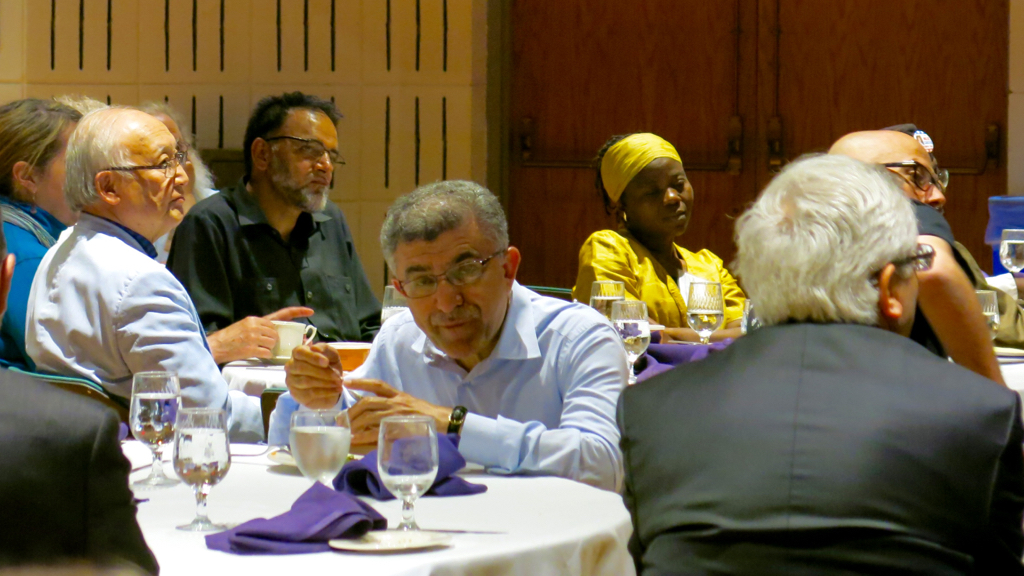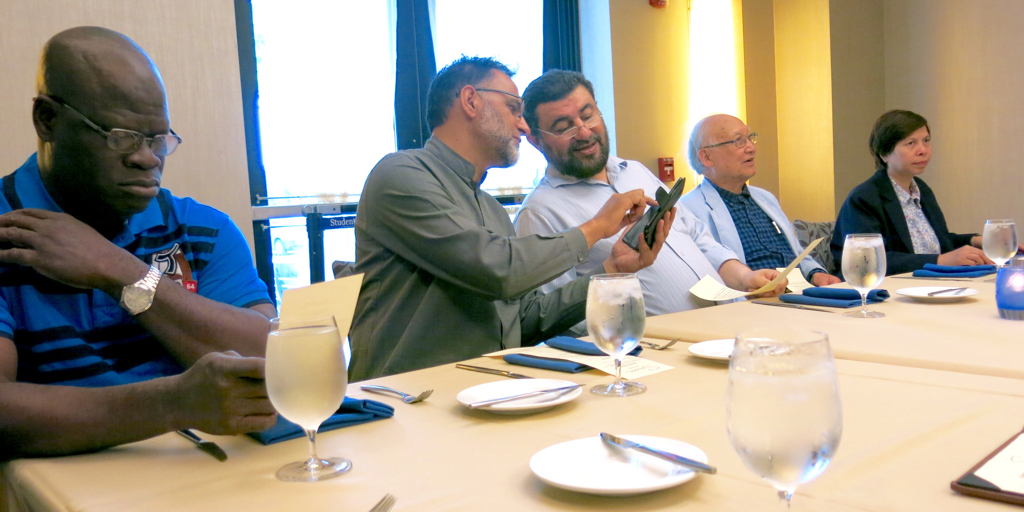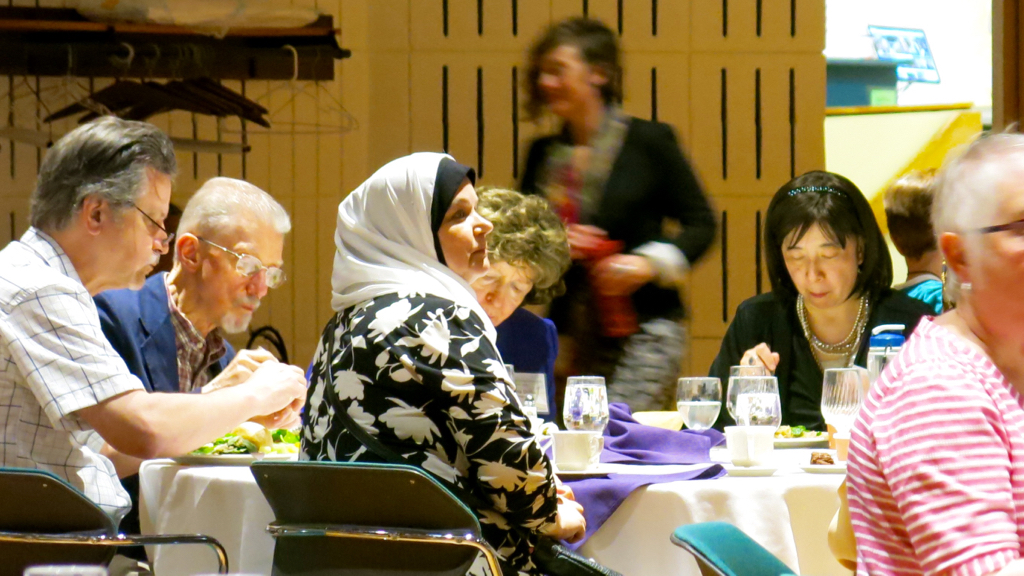The Sacred Texts Human Contexts conference was an international conference. I met people who held passports from Canada, the Democratic Republic of Congo, Japan, Turkey, and the Philippines; and people born in Israel, China, Pakistan, Germany, and Indonesia but now living in the U.S. I was also aware of people who came from other countries, including Nigeria, India, and Malaysia. I’ve probably missed some other nationalities.
The Sacred Texts Human Contexts conference was also an interfaith conference. I met or talked with Christians (both Catholic and Protestant), Jews, Muslims, Buddhists, and adherents of syncretic traditions; there were also Hindus, and probably other religious affiliations that I missed.
Since there were only about 70 people at the conference, this is quite a bit of diversity indeed — as these photos show:
And even though I’m just another white guy from the U.S., I was pleased to be able to provide a tiny bit of religious diversity myself, as an adherent of a miniscule (and even inconsequential) post-Christian sect.
Being a part of such a diverse conference was an interesting experience. Although I try to be a good world citizen and have at least some understanding of major world religious traditions, this conference made me confront how little I know about Islam. My ignorance of Islam may have something to do with the peculiarities of U.S. culture, in which everyone knows (or thinks they know) about Christianity, most of us have some familiarity with Judaism, and college-educated people tend to have a fair amount of knowledge of Buddhism, Taoism, and Hinduism (because these are the Cool Religions, i.e., Not Christian). But here in the U.S., we tend to know little about Islam, except that Malcolm X converted. It’s always good to come up against one’s ignorance; that’s one of the most direct routes towards wisdom; and now I know about my ignorance of Islam, I can take steps to remedy that.
What a privilege to be a part of this conference, to meet such diverse and interesting people! And it was also a privilege to be able to partake in such interesting intellectual conversations, on such an important topic: how world religions might work individually and together to address the global climate crisis.
I’ll conclude my reporting on the content of the conference in two more posts, which should go live tomorrow….



